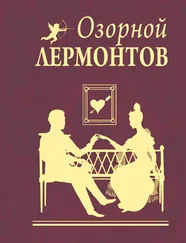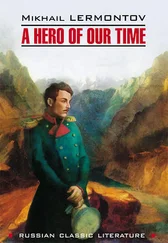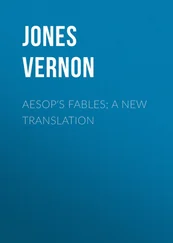I have now read and finished the “Hero.” I find the second volume odious and quite worthy to be fashionable [à la mode] as it is the same gallery of despicable, exaggerated characters that one finds in fashionable foreign novels. It is such novels that debauch morals and distort characters, and whilst one hears such caterwauling with disgust, it always leaves one painfully half-convinced that the world is only composed of such people whose best actions apparently are inspired only by abominable or impure motives. What then is the result? Contempt or hatred of humanity. Is that the aim of our life on earth? One is only too disposed to be hypochondriac or misanthropic. So what is the use, by painting such portraits, of encouraging these tendencies? I therefore repeat my view that the author suffers from a most depraved spirit, and his talents are pathetic. The Captain’s character is nicely sketched. In the beginning to read the story I had hoped, and was rejoicing, that he was the Hero of our Times. In his class there are indeed many more truly worthy of this title than those too commonly dignified with it. The (Independent) Caucasian Corps must surely number many of them, whom one gets to know only too rarely, but such a hope is not to be fulfilled in this book, and M. Lermontov was unable to develop the noble and simple character (of the Captain). He is replaced by wretched and uninteresting people, who—proving to be tiresome—would have been far better ignored and thus not provoke one’s disgust. [6] As translated by Laurence Kelly in Kelly, Laurence. Lermontov: Tragedy in the Caucasus (London: Constable, 1977), p. 100.
In addition to the tsar’s disdain, Lermontov’s hero—given a character of such terrific vices and virtues—received a mixed but vigorous reception by reading audiences when it emerged in 1840. And Pechorin’s personage is so clearly wrought that, it seems, the public and various critics jumped to the conclusion that the book was largely autobiographical. Indeed, Lermontov had also spent time in the military in the Caucasus, and, given his poems, was also subject to the cynical inclinations of his generation. In his poem “Meditation” of 1838, he writes, “I look upon our generation with sorrow! Its future is either empty or dark… And life already tires us, like flat path that leads nowhere…” Lermontov was not so terribly different from his hero in life experience and outlook, but he was resistant to such a facile reading of the book and writes in his preface, “Not long ago, several readers, and some journals even, succumbed to the misfortune of believing in the literal meanings of the words in this book. Some were awfully offended, in all seriousness, at the fact that they were presented with such an unprincipled person as the ‘hero of our time’; indeed, others very shrewdly observed that the author had painted his own portrait and the portraits of his acquaintances… That sorry, old ruse!”
Such defenses on the part of Lermontov need not concern us too much nearly two hundred years later. Indeed, that they both served in the Caucasus, and that they both fought in duels gives them much in common. For Pechorin, duels and Russian roulette bring about questions that are central to the book, and indeed central to life: “Is there such thing as predestination?… And if there is definitely such thing as predestination—why were we given free will, and reason? Why should we atone for our actions?” In this book, and in real life, the duel is a manifestation of such questions. And of course, duels were meant to be the stuff of honor and heroics, and yet so many duels in Russia at the time were fought over petty disagreements—if not out of sheer boredom. More heroes doing unheroic things in an age of cynicism. Smaller ironies among one great big one: we lead our lives as though we have choice in our actions and responsibility for these actions, but is “the fate of a man written in the sky” (as Pechorin and his friends discuss in “The Fatalist”)?
What is eerie is that not only did Pechorin and Lermontov share experiences and a troubled sense of purpose, but there is a duel scene in A Hero of Our Time that almost perfectly describes Lermontov’s own death a year or so after the novel emerged. Prince Alexander Vasilchikov, eyewitness to this fateful duel on July 15, 1841, between Lermontov and his opponent Martynov, whom Lermontov had apparently insulted, described the scene of the poet’s death thus:
At that moment, and for the last time, I glanced at him and I will never forget the calm, almost gay, expression which played upon the poet’s face in front of the barrel of the pistol already directed at him. Martynov approached the barrier with rapid steps and fired. Lermontov fell as if he had been cut down on the spot, without making a movement either forward or backward, without even succeeding in putting his hand to where he had been hurt, as those who have been wounded or grazed usually do. We rushed up. There was a smoking wound in his right side and in his left side he was bleeding: the bullet had gone through his heart and lungs… As if it were today, I recall a strange episode of that fateful evening; our wait in the field beside the corpse of Lermontov continued a very long time, because drivers, on the example of the doctor’s courage, refused one by one to come out to carry the body of the slain man. Night came on and the downpour was unceasing… Suddenly we heard the distant sound of horses’ hooves along the path where the body was lying and, in order to drag it out of the way, we tried lifting it; from this movement, as usually happens, air was expelled from the lungs, but with such a sound that it seemed to us that it was a living cry of pain and for a short while we were certain that Lermontov was still alive . [7] Vasilchikov, Prince Alexander. As translated and mentioned by Richard Freeborn in Freeborn, Richard. “A Hero of Our Time” in The Rise of the Russian Novel (Cambridge: Cambridge University Press, 1973), p. 39.
This gives new meaning to composer Balakirev’s suggestion that Russians travel to the Caucasus to “breathe in Lermontov.”
Lermontov’s life was short but reads like Romantic literature. He was unlucky in life and in love. He was born in Moscow in 1814 and grew up in the province of Penza with his grandmother. His mother had died three years after his birth and his grandmother, by all accounts, was overprotective and possessive of him. He was a shy and idealistic youth and when he was sickly as a child, his grandmother took him to the Caucasus to improve his health. This would be Lermontov’s first exposure to the land he so admired.
At fourteen years of age he moved with his grandmother to Moscow and attended Moscow University Pension for the Nobility and went on to study for a few more years at the university. Afterward he entered the St. Petersburg’s Guards’ School and graduated in 1834. Meanwhile, Lermontov suffered many disappointments, including the death of his father, from whom he had become estranged thanks to his grandmother. His poem “The Terrible Fate of Father and Son” describes the poet’s feelings about this event. The young Lermontov’s love affairs were also plagued by disappointments. The central object of his affections was named Varavara Lopukhina, who is said to have been “pleasant, clever, bright as the day and ravishing.” Lermontov wrote poems to her and made drawings of her but she would marry someone else. Writer and literary historian Janko Lavrin describes Lermontov in particularly vivid tones: “His need of love, ‘romantic’ and otherwise, was unusually intense. But so were his disappointments… Lermontov swallowed his hurt pride; and touchy as he was he never forgave nor forgot… Lermontov was thus compelled to develop at an early age a cold and flippantly ironical attitude toward women simply as a safeguard…”
Читать дальше
Конец ознакомительного отрывка
Купить книгу
![Михаил Лермонтов A Hero of Our Time [New Translation] обложка книги](/books/27671/mihail-lermontov-a-hero-of-our-time-new-translati-cover.webp)










